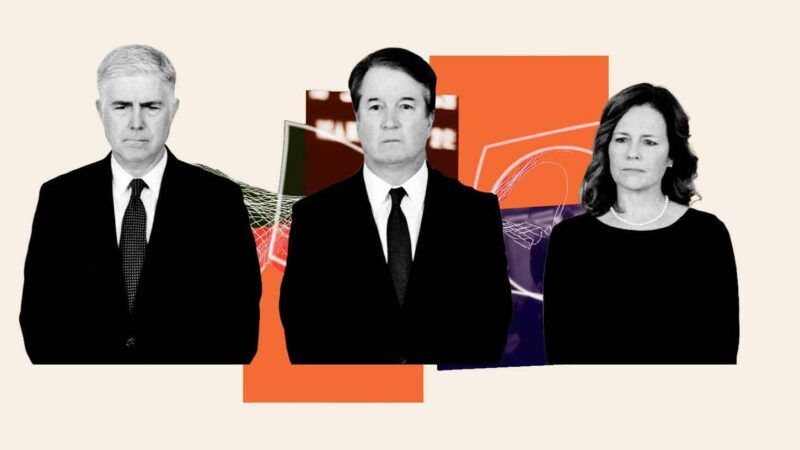Alito and Thomas May Trust Trump To Follow a Court Order, but Gorsuch, Kavanaugh, and Barrett Seemingly Do Not
Understanding the Supreme Court's unusual late-night ruling against the Trump administration

Justice Samuel Alito protests that the U.S. Supreme Court acted "hastily and prematurely" when it issued an unusual late-night order on Friday blocking the Trump administration from using the Alien Enemies Act to carry out a new batch of deportations. "I refused to join the Court's order," Alito wrote in dissent in A.A.R.P. v. Trump, "because we had no good reason to think that, under the circumstances, issuing an order at midnight was necessary or appropriate."
Notably, only Justice Clarence Thomas joined Alito's dissent. Which raises the obvious question: Why did the other seven justices—including all three justices appointed by President Donald Trump—decide that the midnight order was necessary and appropriate?
Before tackling that question, it's worth recounting how we got here. On April 7, the Supreme Court unanimously held in Trump v. J.G.G. that all deportees under the Alien Enemies Act (AEA) must be afforded due process, including "notice and an opportunity to challenge their removal." Specifically, according to the Court's order, "AEA detainees must receive notice after the date of this order that they are subject to removal under the Act. The notice must be afforded within a reasonable time and in such a manner as will allow them to actually seek habeas relief in the proper venue before such removal occurs."
Yet the Trump administration was reportedly preparing to carry out another round of rushed AEA removals late last week absent the required notice and opportunity to challenge. In other words, the Trump administration was reportedly preparing to act in potential violation of the Supreme Court's April 7 order.
That prompted emergency filings by the American Civil Liberties Union (ACLU), which is representing some of the Venezuelan nationals facing AEA deportation. Those individuals are currently being held in a detention center in Texas.
After failing to obtain a federal district court order to halt those Texas deportations, the ACLU asked both the U.S. Court of Appeals for the 5th Circuit and the Supreme Court to step in. The Supreme Court obliged, ruling late on Friday night (April 18) that "the Government is directed not to remove any of the putative class of detainees from the United States until further order of this court."
Writing in dissent, Alito argued that the Court did not need to do what it did because the Trump administration had already informed a lower court that, in Alito's words, "no such deportations were then planned to occur either yesterday, April 18, or today, April 19."
But Alito may have been mistaken about the government's representations in court. According to this report from ABC News, the Trump administration did not foreclose the possibility of carrying out further deportations on Saturday April 19:
While a lawyer for the Department of Justice initially suggested that no deportation flights were scheduled for Friday or Saturday, he backtracked later in Friday's hearing, keeping the door open for flights to begin as soon as Saturday.
"I've spoken with DHS, they are not aware of any current plans for flights tomorrow, but I have also been told to say that they reserve the right to remove people tomorrow," Deputy Assistant Attorney General Drew Ensign said.
If that report is accurate, then the Trump administration's claim to "reserve the right to remove people tomorrow" suggests that the administration may have been preparing to act in imminent violation of the Supreme Court's April 7 order.
Which brings us back to the question posed above: Why did seven justices decide that the unusual midnight order was necessary and appropriate in A.A.R.P. v. Trump?
The most plausible answer may be that Alito and Thomas are now the only members of the Court who are still willing to trust the Trump administration to faithfully abide by court orders in an AEA case, especially when the clock is ticking. The rest of the Court, including Trump appointees Neil Gorsuch, Brett Kavanaugh, and Amy Coney Barrett, are now seemingly prepared to use a much firmer hand to keep the administration in check.


Show Comments (187)